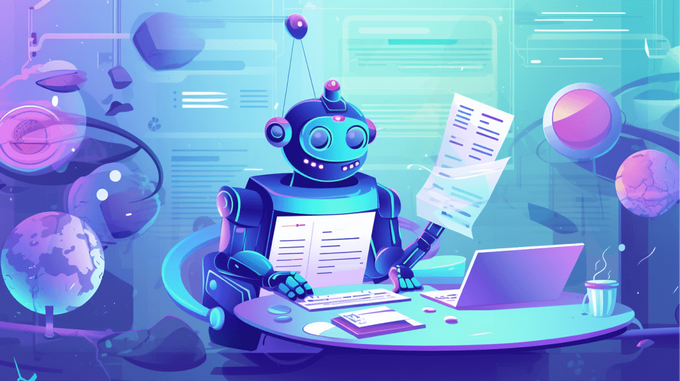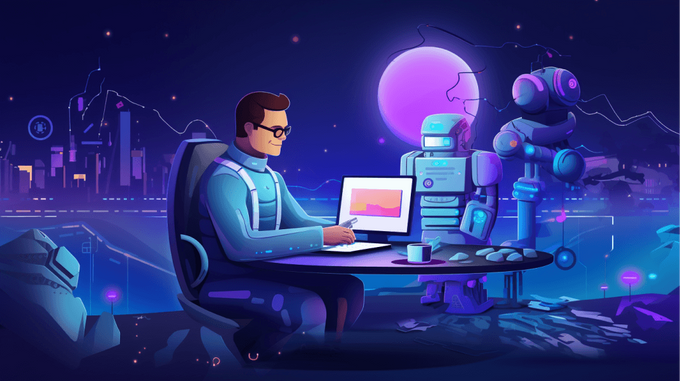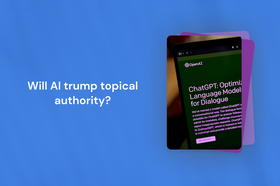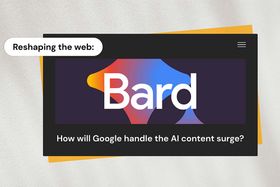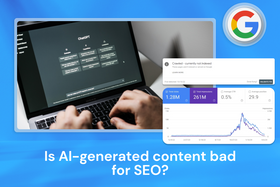Is ChatGPT rewriting the rules of content marketing?
Published June 12, 2024
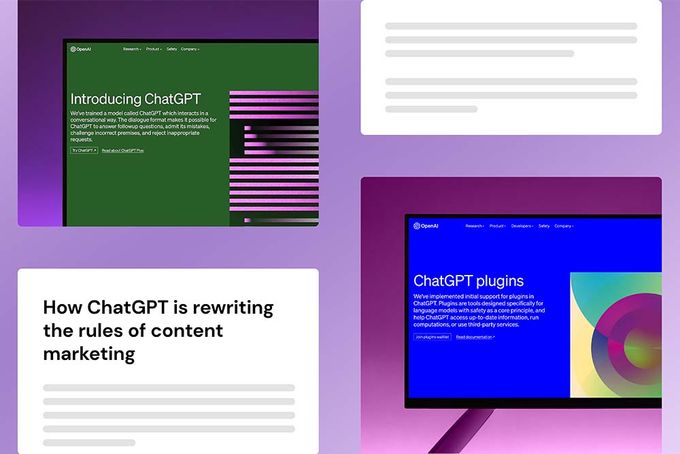
AI Summary
Key takeaways
- AI-led content hyperinflation makes certain content types irrelevant.
- Content creators need to shift their focus to creating unique content.
- AI introduces content marketing challenges like intellectual property concerns and plagiarism risks.
- The combination of AI and search brings many new opportunities.
AI copywriting tools such as ChatGPT and Google Bard (now Gemini) have streamlined the writing process, producing fluent and high-quality content that has surprised many. However, while they simplify and improve writing, these tools introduce new complexities, making content marketing far more challenging.
This brings us to the question:
What happens when everyone can create content without limit?
The era of content hyperinflation is coming
This new era has sparked an explosion of social media content and even simplified the content creation process for those with limited resources. This trend has given rise to numerous small influencers and everyday individuals disseminating content across the internet.
The consequence of this growth is a form of content hyperinflation. As the capacity to generate content becomes more common, its overall value diminishes, presenting significant challenges to publishers.
This means many types of content are becoming less relevant.
Not all content is relevant anymore
The growing irrelevance refers to content that AI, like ChatGPT or Gemini, can readily generate. For instance, factual questions such as "What's the average temperature in my city?" can be answered instantly by these tools.
There's little need to craft an article for such data, especially if it remains static over time. Similarly, content typically seen in Google snippets is also becoming obsolete as AI can quickly provide those answers.
Another category facing redundancy includes Excel or Google Sheet formulas and code snippets. When someone is searching for a specific formula or code, it can be challenging to accurately decipher their search intent and provide the exact answer.
However, an AI chatbot can understand the user's needs and adapt its responses, making for a more efficient search.
A plethora of other content types are also losing their relevance due to AI's capabilities. These types of content aren't becoming irrelevant to the consumer but to content marketers because AI tools can easily generate them, eliminating the need for human intervention.
» Find out what content will stay relevant in the age of AI.
It’s time to step up your game
The fundamental takeaway is that content marketers need to substantially elevate their skills to succeed. With the increasing irrelevance of certain content types, the ability for everyone to generate limitless content almost for free, and the ensuing hyperinflation of content, maintaining the status quo will result in underperformance.
Plus, Google is likely to exclude many pages from its index due to an oversaturation of duplicated or highly similar content.
If AI tools like Bing or Gemini can easily provide an answer, there's little value in sourcing responses from these platforms and publishing them on your website as articles.
To remain relevant and continue generating traffic and interest, marketers need to produce creative, entertaining, and interesting content that surpasses previous standards. Brands should re-evaluate their content strategies to maintain their relevance in this rapidly evolving landscape.
Shopify: A parallel to AI's disruption of content creation
Take Shopify as an example, currently the most popular among various e-commerce platforms. Since its inception, there's been a proliferation of e-commerce stores, largely because Shopify simplified the process of starting an online business. It allowed individuals to launch their stores with minimal development.
However, as online selling became more accessible and competition increased, the challenge shifted to, “What is your competitive edge?” To succeed on Shopify today, you need a unique advantage, whether it's distinctive products, advanced marketing techniques, or competitive prices.
In the same way, tools like ChatGPT and Gemini have simplified content creation, leading to a more challenging content marketing landscape. The need for high-quality content to stand out is now more significant than ever.
» Explore the types of content AI can't generate.
AI is creating new challenges in content marketing
Intellectual property
AI learns from the entirety of internet content, spanning not only text but also design, photography, and animation. By processing this vast data and generating similar content almost cost-free, it risks making certain professions obsolete.
Consider Stack Overflow, a website that provided immense amounts of information, now facing irrelevance despite its valuable contributions.
The issue of intellectual property in the AI era is far from resolved. Its implications are uncertain, and the future developments in this realm remain to be seen.
Plagiarism and duplicated content
With the surge in content creation, many instances of duplicating or closely mimicking existing content arise. Publishing content created by AI tools could be viewed as a form of plagiarism against these platforms.
Content hyperinflation
The AI revolution, as warned by thought leaders such as Elon Musk and Sam Altman of OpenAI, brings about numerous challenges and unanswered questions regarding its potential effects. Among these concerns is content inflation, making the type of content we've traditionally created less relevant.
AI tools like ChatGPT have disrupted Google's long-standing monopoly on search—the largest software category, according to Microsoft CEO Satya Nadella. This disruption has forced Google to innovate, creating a new interactive search experience.
» Discover whether ChatGPT poses a real threat to Google.
Embrace the challenge and seize the opportunity
With 93% of all online experiences starting with search and this number continually growing, the evolution of search interfaces to include chat functions will only catalyze further growth, making the market increasingly volatile.
In such a volatile market, new opportunities arise, especially for marketers. The merging of AI and search, as demonstrated at the latest Google I/O, offers ample opportunities for visibility within search results.
Google, being primarily a platform for user-generated content, relies on showcasing others' content rather than creating its own. This model lends itself to new opportunities within chat interfaces to feature your product, article, video, or any relevant content.
SEO is becoming more diverse, creating a richer set of opportunities for ranking within AI tools like Gemini. Content marketing has become more challenging. Marketers need to raise their game, understand what content will perform, and keep up with market shifts.


